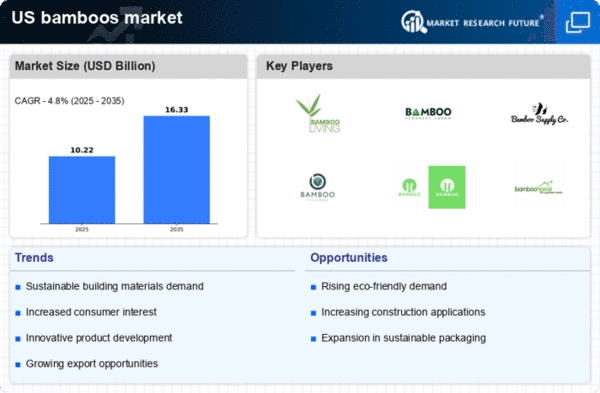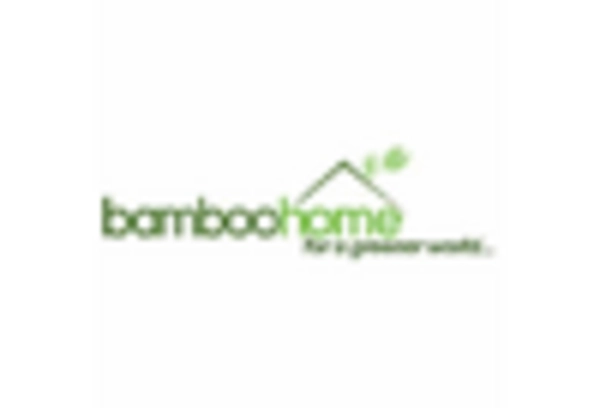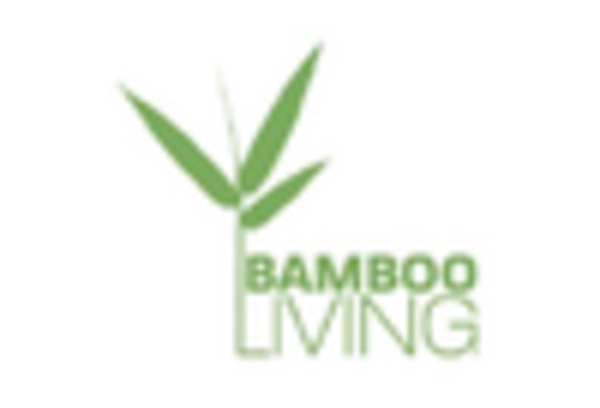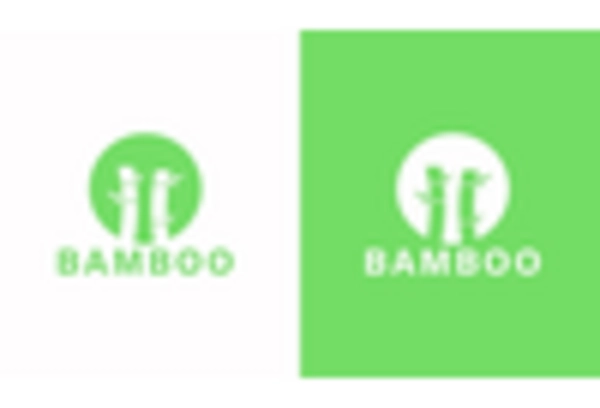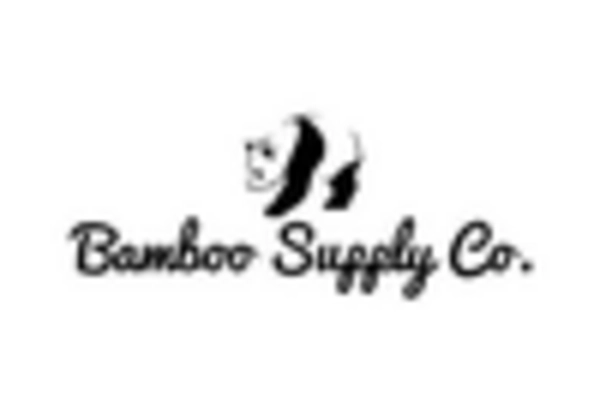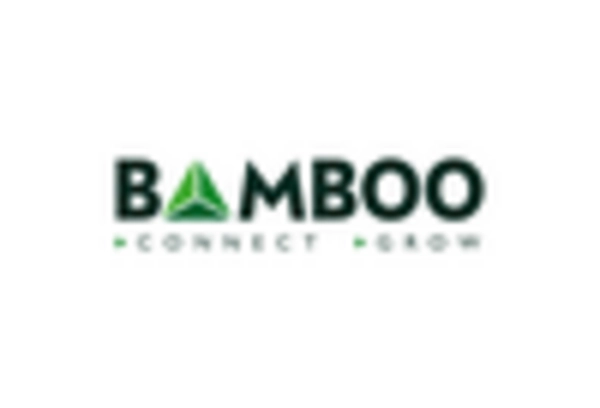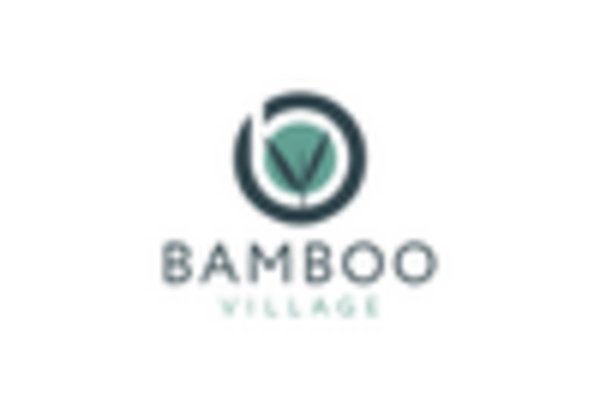Rising Demand for Eco-Friendly Products
The increasing consumer preference for sustainable and eco-friendly products is a pivotal driver in the bamboos market. As environmental concerns gain traction, more consumers are gravitating towards materials that minimize ecological footprints. Bamboos, known for their rapid growth and renewability, align perfectly with this trend. In the US, the market for sustainable building materials, including bamboo, is projected to grow at a CAGR of approximately 10% over the next five years. This shift towards eco-conscious purchasing is likely to bolster the bamboos market, as manufacturers respond to consumer demands by incorporating bamboo into various applications, from flooring to furniture.
Growing Interest in Biodegradable Materials
The rising awareness of plastic pollution and the need for biodegradable alternatives is propelling the bamboos market forward. Bamboo, being a natural and biodegradable material, presents a compelling solution for consumers and businesses seeking to reduce their environmental impact. The US market is witnessing a shift towards products made from biodegradable materials, with bamboo being at the forefront. This trend is particularly evident in packaging and disposable products, where bamboo's properties can replace conventional plastics. As more companies adopt bamboo-based solutions, the bamboos market is likely to experience substantial growth.
Technological Advancements in Bamboo Processing
Technological innovations in the processing and treatment of bamboo are transforming the bamboos market. Advanced techniques enhance the durability and versatility of bamboo, making it suitable for a wider range of applications. For example, new treatments can improve bamboo's resistance to pests and moisture, expanding its usability in construction and furniture. The introduction of engineered bamboo products, which combine multiple layers of bamboo for added strength, is also gaining traction. These advancements not only improve product quality but also increase market competitiveness, potentially leading to a surge in demand within the bamboos market.
Increased Investment in Sustainable Infrastructure
Investment in sustainable infrastructure is a crucial driver for the bamboos market. As cities and communities prioritize green building practices, the demand for sustainable materials like bamboo is expected to rise. The US government and private sector are increasingly funding projects that incorporate renewable resources, including bamboo, into their designs. This trend is evident in the construction of eco-friendly buildings and public spaces that utilize bamboo for its aesthetic and environmental benefits. As these investments continue, they are likely to create new opportunities for growth within the bamboos market, fostering innovation and expanding market reach.
Government Initiatives Supporting Sustainable Practices
Government policies and initiatives aimed at promoting sustainable practices significantly influence the bamboos market. Various federal and state programs incentivize the use of renewable resources, including bamboo, in construction and manufacturing. For instance, tax credits and grants for using sustainable materials can enhance the attractiveness of bamboo products. The US government has set ambitious targets for reducing carbon emissions, which may further encourage the adoption of bamboo as a viable alternative to traditional materials. This supportive regulatory environment is expected to drive growth in the bamboos market, as businesses seek to align with governmental sustainability goals.


